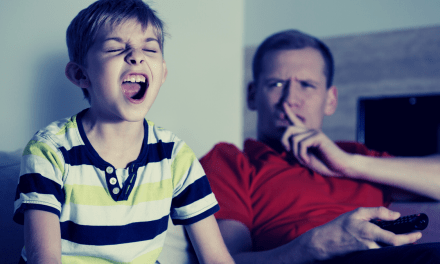We all understand that life can be remarkably challenging and that raising a family makes it more challenging, and having a strong-willed or difficult child multiples the struggles. In all situations, we still have to remember the vital importance of maintaining the most impeccable model as parents we can be. As a parenting coach, I am fond of reminding my clients that “You can’t expect your children to act better than you do.”
How often are we willing to compromise what we know is right to indulge the emotion of the moment? If we are willing to be reactive like this, then here’s what our children see:
• When Mom doesn’t get me to do what she wants, she can scream and yell at me.
• When I don’t listen to Dad, he can throw a tantrum.
• When Mom and Dad don’t agree, they can fight and yell at one another.
So please understand: All your child knows is that Mom and Dad can yell, scream and fight with each other if they are unhappy. Your children may also see you throwing grown-up tantrums; whining, complaining at them, and sometimes…even fighting between yourselves (just like siblings).
Inside Your Child’s Brain: Imagine that there is always a small recording device in your child’s brain. This recording device is always recording information, and always striving to understand how to handle things.
This recorder is taking notes about how to handle frustration, how to deal with anger, and when to complain, and when to react. It never stops recording and pays close attention to every comment.
But the recorder is specially designed to record events that are more intense, more emotional, and more memorable. Those take a special place in your child’s memories and serve as a guide to handling life.
How does your child understand the rules of life? For some, it sounds like this: When you don’t get what you want, you just throw a fit. It’s okay to yell and scream. It’s okay to even embarrass yourselves in front of others, to try to get what you want by yelling and screaming. It’s okay to be disrespectful if you are angry. And it’s certainly okay to fight and yell to get what you really, really think is important.
Do you see how this works?
It is simply impossible to try to coach your children into remaining calm when they face frustration if you can’t model this yourself.
It’s impossible to teach your children to remain respectful and reasonable when they aren’t getting what they want if you have shown them that losing your cool is acceptable when you get frustrated or upset with someone.
What do you do when things get difficult? What do you do when you had a tough day?
How pleasant are you to strangers who are short with you? How calm are you in the face of turmoil and stress?
Answer these questions, and you will have a good sense of what your kids are learning to do when they have had a tough day, or when not getting what they want from life.














